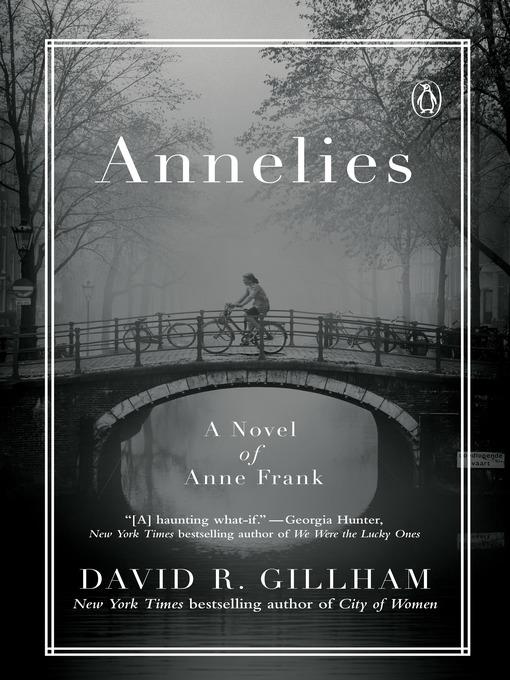
Annelies
A Novel
کتاب های مرتبط
- اطلاعات
- نقد و بررسی
- دیدگاه کاربران
نقد و بررسی

November 15, 2018
After delving into the moral complexities faced by Berliners during World War II (City of Women, 2012), Gillham creates an alternate reality in which Anne Frank survives the Holocaust.Gillham faces an impossible challenge in fictionalizing Anne Frank's life before and during her time in hiding. Readers of her diary (and who isn't one?) have already experienced a more vividly illuminating account of Anne's arguments with her mother, her ambivalence toward her older sister, Margot, her adoration of her father, Pim, her complicated relationship with Annex-mate Peter and his family, even her ambition to be a writer; Gillham's insertion of quotes from the diary only heightens the contrast between its artless eloquence and this clunky retelling. Once the Nazis discover the Franks, there is no diary to rely on for comparison. Instead the novel offers standard, if painfully accurate, concentration-camp tropes of suffering and sacrifice. The real Anne and Margot died of typhus at Bergen-Belsen. Fictional Anne recovers in British-occupied Germany after liberation, then returns to Amsterdam to reunite with Pim in what should be a joyful moment but is undercut by "a bite of fury." While what happens to Anne's diary drives the plot, the emotional and ethical trauma suffered by survivors of wartime atrocity is the central theme. All the postwar characters, Jewish and gentile, struggle to overcome their past. Anger and survivor's guilt storm within Anne. Margot's ghost has become her constant companion. In one particularly powerful scene, Anne remains jealous over a sweater Margot received in Auschwitz instead of her but also recalls how Margot and their mother sacrificed transfer to a safer work camp because Anne was too sick to go with them. Anne's hostility to Pim's new wife and suspicion of everyone else in Amsterdam control her behavior until she faces the anger she directs toward herself.Gillham takes a brave risk in turning an icon of goodness into a bitter, troubled survivor to show the emotional crises faced by Holocaust survivors, although flat-footed storytelling weakens the impact.
COPYRIGHT(2018) Kirkus Reviews, ALL RIGHTS RESERVED.

December 1, 2018
Anne Frank died at Bergen-Belsen concentration camp in 1945, just shy of her sixteenth birthday. Her world-famous diary gives powerful voice to the unmitigated horror of the Holocaust, and the hope that flourished despite it. Gillham's (City of Women, 2012) novel treads perilous territory: it imagines Anne as a survivor returning home. Gillham conjures a convincing atmosphere for postwar Amsterdam, though Anne is virtually unrecognizable. The girl who wrote I still believe, in spite of everything, that people are truly good at heart is transformed into a roiling mass of outrage, plagued by the apparition of her dead sister, Margot, and unkind to those who love her most. Some may find this deeply troubling, possibly offensive, even as Gillham contrasts Anne's anger with the attitude of other survivors, notably her father, who cautions that vengeance only causes more pain. He vows to put aside the past, live well, and love those remaining. These conflicting viewpoints center the novel, giving it relevance in today's rage-driven culture, especially as Margot warns: Words have power. . . . You should be careful how you use them. (Reprinted with permission of Booklist, copyright 2018, American Library Association.)

Starred review from October 15, 2018
Gillham (City of Women) has given Annelies Marie Frank (1929-45) the life so brutally taken from her, in the process honoring all the "Annes" who were lost in the Holocaust. In a less assured author's hands, a novel based on the premise that Frank survived the concentration camps would be in very bad taste; however, Gillham's beautifully crafted novel is a respectful tribute to the creative and passionate writer who died so young. Anne and her troubled relationship with the only other member of her family to survive, her beloved and formerly revered father "Pim," is sympathetically conveyed, as is the horrible guilt haunting the survivors. The author aims to stick to the facts as much as possible, basing the story before the annex on exhaustive research. Once Anne returns to Amsterdam after the war, Gillham brings in new characters as well as real people from Anne's diary, such as their protector Miep Gies. Frank's life thereafter is so vividly realized that readers will have to keep reminding themselves this is fiction. VERDICT Highly recommended for admirers of literary historical fiction such as Kristin Hannah's The Nightingale and Martha Hall Kelley's Lilac Girls. [See Prepub Alert, 7/30/18.]--Elizabeth Safford, Boxford Town Lib., MA
Copyright 2018 Library Journal, LLC Used with permission.

October 15, 2018
The New York Times best-selling author of City of Women here focuses on one young woman, Anne Frank, the heartrending symbol of the Holocaust, imagining that she has survived the Bergen-Belsen concentration camp and immigrated to America with her father after the war.
Copyright 2018 Library Journal, LLC Used with permission.

























دیدگاه کاربران